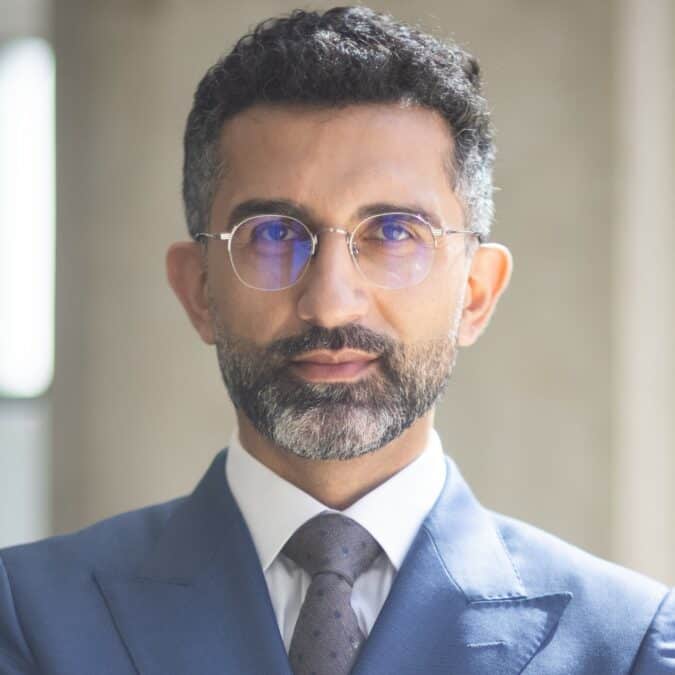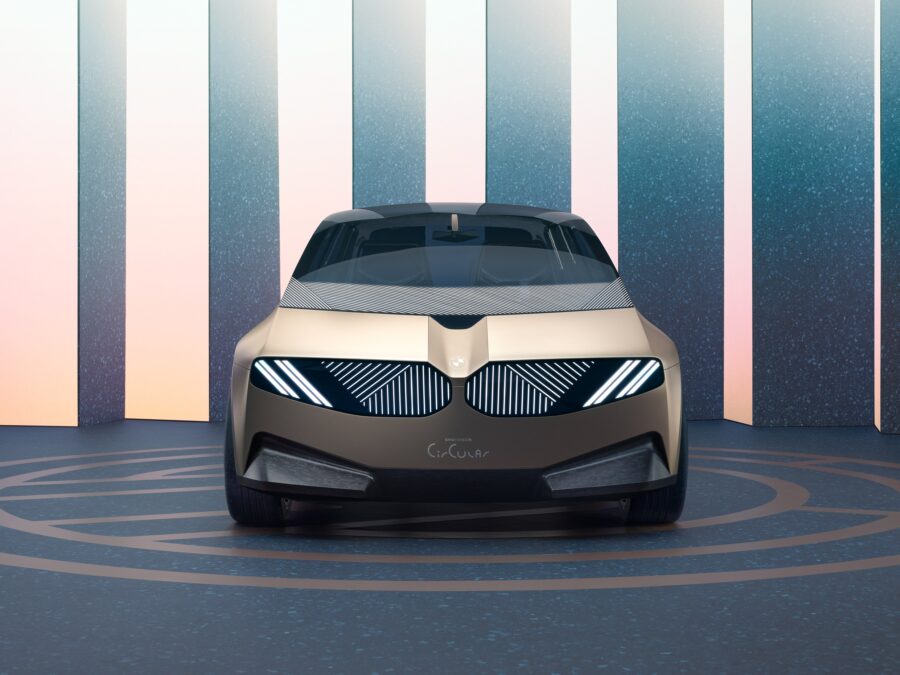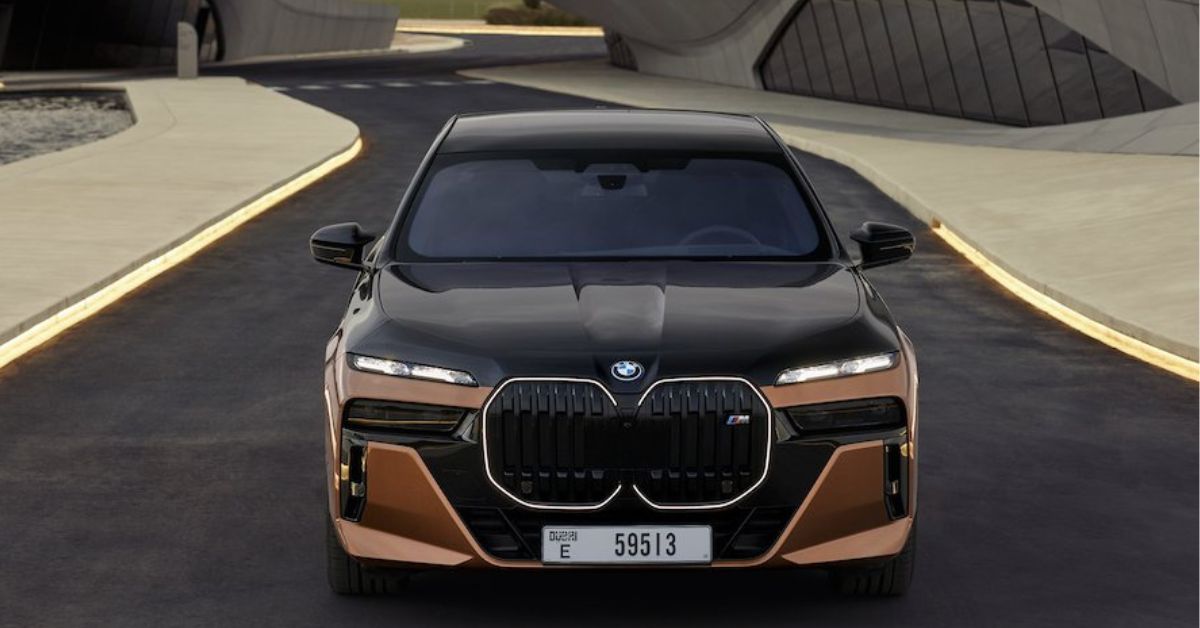DUBAI, UAE — Despite recent economic challenges, the GCC region’s luxury car market has remained resilient. The BMW Group is still able to navigate times of inflation and supply chain disruptions by relying on operational excellence and a strong supplier network. Furthermore, the Group has managed to stay on its strategic path and accelerate the transition to sustainable mobility.
TRENDS spoke with Dr Hamid Haqparwar, Managing Director of BMW Group Middle East, about the Group’s latest sustainability plans, the state of luxury cars in the region, and market expectations in 2023.
Excerpts:
How are you focusing on sustainability given that all industries worldwide prioritize it? What are your plans and visions for the GCC and Middle East markets? And do you see a demand for environmentally friendly vehicles?
The future of our society will depend on how we respond to climate change and how we manage the limited resources available. The BMW Group has set clear targets for CO2 reduction up to 2030 – throughout the entire lifecycle: from the supply chain through production to the end of the use phase. The aim is to reduce CO2 emissions per vehicle by 40% across the entire spectrum. The BMW Group is also committed to the goal of complete climate neutrality throughout the entire value chain by 2050 at the latest.

However, sustainable mobility also requires us to consider the entire lifecycle of a vehicle – not just the use phase. This includes sustainable design, end-of-life considerations, and incorporating recyclable materials. By utilizing circular economy principles and secondary materials, BMW Group aspires to be the world’s most sustainable premium car manufacturer. This requires a complete rethinking of how we harvest, use, and recycle materials.
Take our partnership with Emirates Global Aluminium (EGA) as an example: EGA supplies the BMW Group with CelestiAL aluminium produced using solar energy from the Mohammed bin Rashid Al Maktoum Solar Park in Dubai. Producing aluminium is energy-intensive, which means the switch to CelestiAL is critical for our sustainability journey. In fact, our latest vehicles, including the new BMW 7 Series, are made with EGA’s CelestiAL aluminium.
We also recognize that each market has its own pace in adopting zero-emission vehicles. To avoid a one-size-fits-all approach, we place the power of choice in the consumers’ hands by embracing technological openness. Based on customer preferences and lifestyles, offering them more than one drive train technology will hasten the transition towards zero-emission mobility in the region.
With the global recession and inflation, do you see an increase in demand for clients to buy luxury cars these days, or are they shifting to middle-class vehicles?
The luxury car market in the GCC region has remained resilient despite the economic challenges of recent years. BMW Group continues to navigate through times of inflation and supply chain disruptions by relying on operational excellence and a strong supplier network. There is also a clear demand for luxury models in our region. With our fully electric luxury models, such as the BMW i7, this is an opportunity to offer premium vehicles with sustainability in mind.
The Middle East is one of the top regions when it comes to the ratio of luxury BMW models sold. When we look at our customers here in the Middle East, our highest-selling models are from our luxury segment – which are the 7 Series, 8 Series, X7, and the XM.

What are the current challenges in the luxury car market, and what are your expectations for the GCC luxury car market in 2023?
It is becoming clear that sustainability and luxury will become inseparable. As we look to transition towards sustainable mobility, the main challenge ahead is the development of the required infrastructure. It is important to remember that the Middle East is transitioning at a different pace within each of its markets. This is expected, and we need to be able to cater for markets individually based on their rate of adoption.
Could you give us some insights about BMW’s record global growth in the 2022 fiscal year?
The BMW Group met its targets for 2022 and delivered a strong operating performance in a challenging business environment, with a significant increase in Group EBT (€ 23,509 million/ +46.4%) and net profit (€ 18,582 million/ +49.1%) from the previous year. With a total of 2,399,632 units delivered globally, 215,752 deliveries were of fully electric vehicles (+107.7% YoY).
What are the new technologies that BMW is currently working on?
It is becoming clear that hydrogen fuel cell electric vehicles (FCEV) have the potential to complement battery electric vehicles, especially in the Middle East, as countries in the region potentially become major producers of clean hydrogen. We recently launched a global pilot fleet featuring the BMW iX5 Hydrogen, which will be coming to the Middle East soon. This pilot will demonstrate the effectiveness of adopting a dual approach, and the potential of adding FCEVs to the drive technology used by battery-electric vehicles.
What are the new models that are popular in the GCC region, and are they the same as the global models, or is there a difference in demand? In the GCC, the luxury segment (7 Series, 8 Series, X7 and XM) continues to perform higher in terms of ratio when compared to other regions. This is due to a strong product mix, including the recent launches of much-anticipated models such as the BMW XM and BMW 7 Series.








